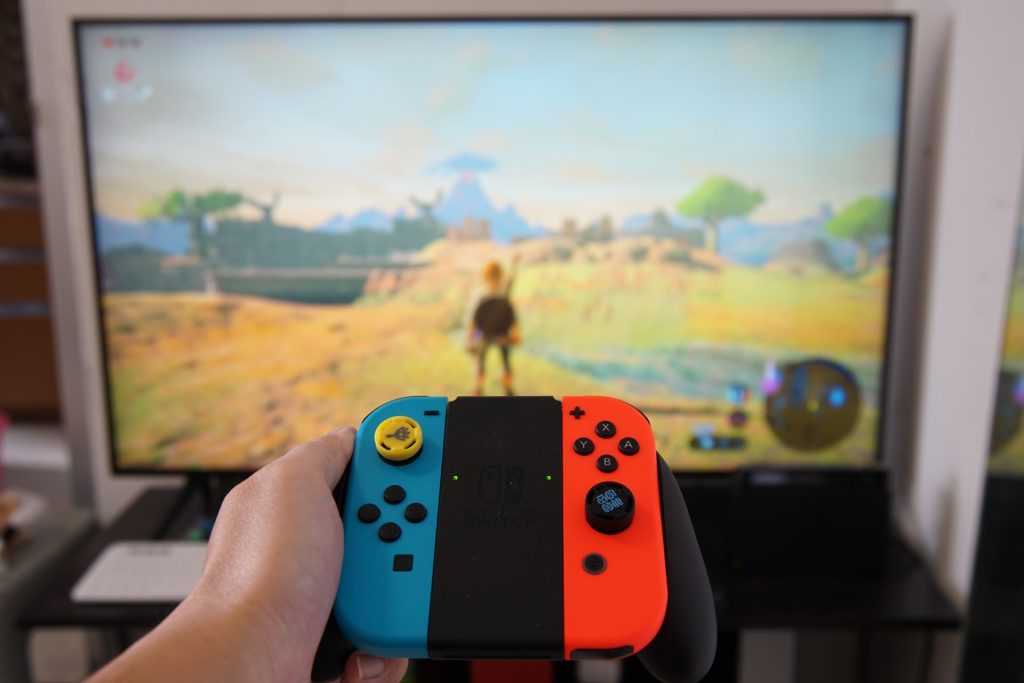In the dynamic landscape of modern entertainment, video games have emerged as a dominant force, captivating the attention of children worldwide. As parents, understanding the intricate interplay between video games and your child’s developing brain and behavior is crucial. This blog post aims to unravel the multifaceted impact of video games, delving into both the positive and negative aspects, and providing practical tips on striking a balance.

The Rise of Video Game Use in Children
In today’s tech-savvy era, children have unprecedented access to an extensive array of video games across various platforms. The fundamental question arises – are video games a boon or a bane for kids? Unsurprisingly, the answer is not a straightforward one. Research indicates that video games can yield positive outcomes for cognitive development, enhancing skills like problem-solving, memory retention, and spatial reasoning.
However, this positive narrative comes with a caveat. Concerns loom over potential adverse effects on mental health, including addiction, heightened aggression, and a decline in academic performance. The key lies in the judicious regulation of video game usage to ensure a harmonious integration into a child’s overall development.
Positive Effects of Video Games on Children’s Brains
Contrary to prevalent misconceptions, video games can offer cognitive benefits to children. Scientific studies reveal that engaging in video games can contribute to improved memory, attention span, and decision-making skills. Certain genres, particularly those involving strategy and role-playing, go a step further by instilling valuable life skills such as teamwork and communication.
Moreover, video games can serve as immersive educational tools, creating a safe virtual environment for children to learn and explore. This aspect becomes particularly significant for children with learning difficulties, offering them an alternative avenue for skill development.
It is crucial, however, for parents to exercise discernment in selecting games. The content and nature of video games play a pivotal role in determining their impact. Games laden with violence or intense competition may potentially yield negative behavioral outcomes. Hence, active parental involvement in curating age-appropriate and content-sensitive gaming experiences is imperative.

Negative Effects of Video Games on Children’s Brains
While acknowledging the positive aspects, it is equally essential to address the potential pitfalls associated with excessive video game use. Studies underscore the correlation between prolonged gaming sessions and issues like addiction, social isolation, and a decline in academic performance. The captivating allure of video games, with their visually dynamic and interactive nature, can inadvertently lead to reduced focus on other crucial aspects of a child’s life.
Excessive gaming may also manifest as an unhealthy obsession, disrupting normal daily routines and impinging on essential activities such as homework, social interactions, and physical exercise. The sedentary nature of prolonged gaming sessions contributes to concerns about physical health, with increased risks of weight gain, sleep disturbances, and the development of conditions like obesity and cardiovascular disease.
While the negative impacts are evident, the key lies in moderation and balanced usage. Setting appropriate limits on screen time and actively monitoring the content of the games can mitigate potential harm.
How to Regulate Children’s Use of Video Games
Navigating the video game landscape requires a nuanced approach from parents. Establishing a framework for responsible and balanced video game use is paramount. Here are some practical tips:
- Moderation is Key: Video games should coexist with a diverse range of activities in a child’s life. Encourage participation in sports, reading, and face-to-face interactions with family and friends.
- Set Clear Rules and Boundaries: Define specific rules for video game usage, including daily time limits and designated playtimes. Consistency in enforcing these rules helps children understand the importance of a balanced lifestyle.
- Age-Appropriate Content: Actively monitor the games your child plays, ensuring they are age-appropriate and align with your values. Be prepared to say no to games that may not be suitable for your child’s age or maturity level.
- Parental Involvement: Use video games as an opportunity to bond with your child. Play games together, discuss their preferences, and engage in conversations about the virtual worlds they explore. This not only strengthens your connection but also provides insights into your child’s gaming choices.

In conclusion, the impact of video games on a child’s brain and behavior is nuanced, with both positive and negative dimensions. Striking a balance involves thoughtful regulation, active parental involvement, and an emphasis on a well-rounded upbringing. By embracing moderation and considering the content of the games, parents can navigate the pixel playground to ensure a healthy and enriching gaming experience for their children.





